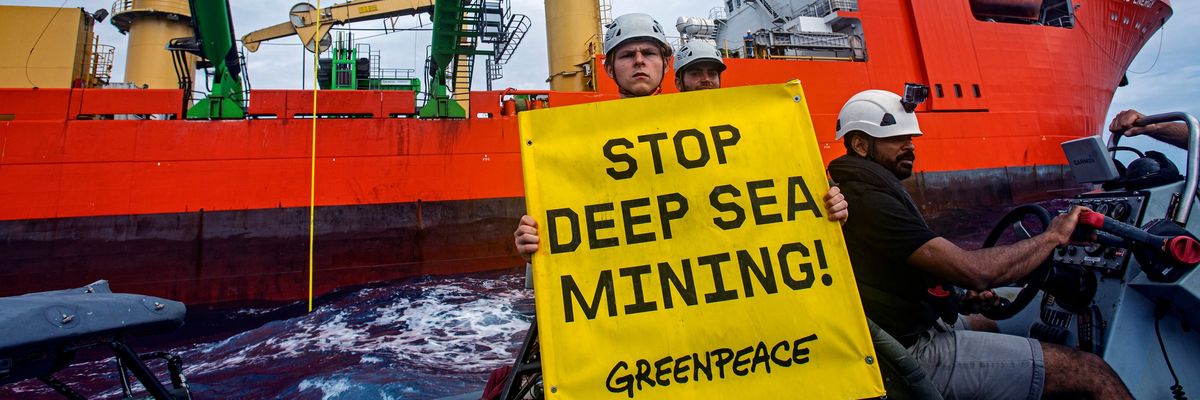Environmental protection groups on Tuesday warned that the Norwegian government's new deal with two right-wing minority parties to open the Arctic Ocean to deep-sea mining would be "a disaster" and flies in the face of warnings from scientists about companies' exploration of the seabed.
The Labor and Center Parties, which have control of the government, reached an agreement with the right-wing Hoeyre and Progress Parties to allow Stortinget, the Norwegian parliament, to approve the first projects by deep-sea mining firms such as Loke Marine Minerals.
The plan would gradually open areas of the Greenland and Barents seas in the Arctic, and proponents claimed it would set strict environmental survey requirements. The proposal is set to be formally debated by the Stortinget on January 4, followed by a vote.
Despite the promises of environmental protections, Greenpeace Norway said the government cannot claim to know "what consequences this will have for the ecosystems in the sea, for endangered species such as whales and seabirds, or for the fish stocks on which we base our livelihood."
Norway is "giving up any pretense of being an environmental leader" by embracing deep-sea mining, said the group.
The European Academies Science Advisory Council in August said the push to extract metals like cobalt and copper from the fragile seabed—ostensibly to support the production of batteries for electric vehicles, wind turbines, and other products—is "misleading" and could cause "irreparable damage" ecosystems where thousands of newly discovered species live.
The minerals are already mined elsewhere on Earth, scientists have pointed out, and the deep sea could be placed at risk for chemical leaks and spills as well as harmful noise and light pollution.
More than 800 marine scientists have called for a global moratorium on deep-sea mining, and 119 members of the European Parliament have called on Norwegian lawmakers to reject the proposed opening process.
Frode Pleym, head of Greenpeace Norway, called Tuesday's proposal "shameful" for the country.
"The Norwegian government is not only ignoring hundreds of concerned scientists, but also showing disregard for its international obligations and national environmental legislation," said Pleym. "By opening up for deep-sea mining, Norway has lost all credibility as a responsible ocean nation that signed the United Nations ocean treaty."
Martin Sveinssønn Melvær of the Bellona environmental group in Norway said it would be "a dangerous derailment in the fight against climate change to open up seabed minerals."
Pleym pledged that the fight against deep-sea mining in Norway "doesn't end here."
"Across the Greenpeace network, we will work to stop every deep-sea mining project presented to the Norwegian parliament," he said. "The wave of protests against deep-sea mining has just started to grow... We will not allow Norway to destroy the unique life in the deep sea, not in the Arctic nor anywhere else."
